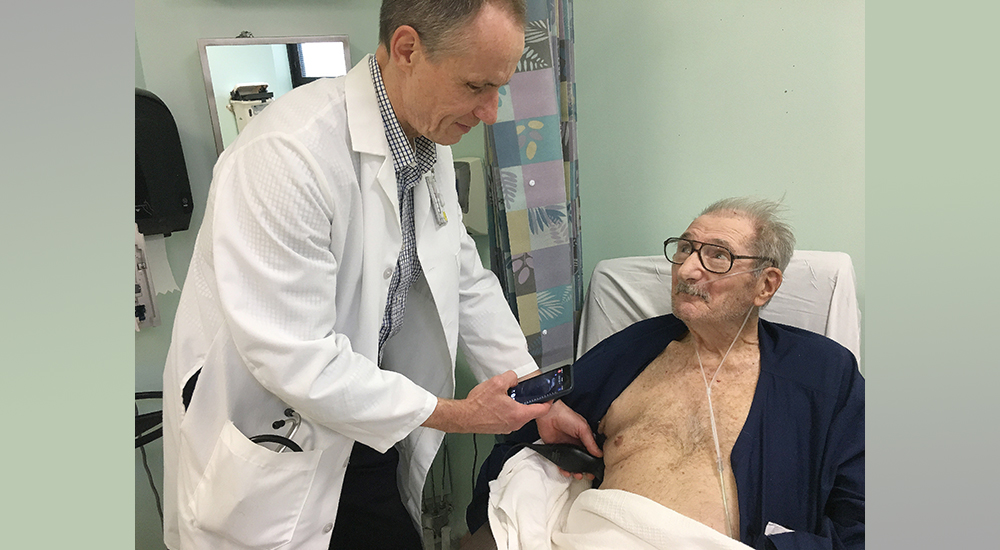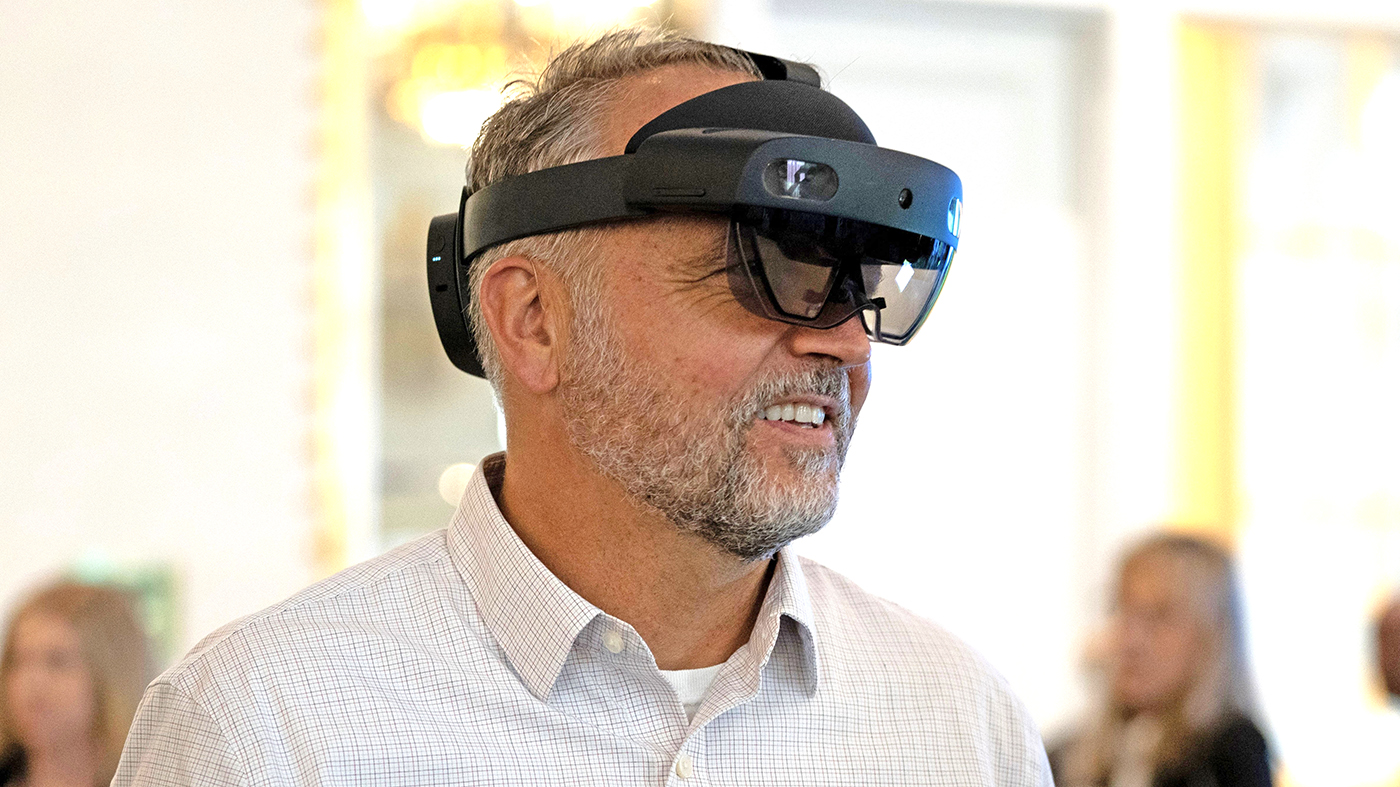Clinicians who are, or becoming, experts in Point of Care Ultrasonography (POCUS) are in awe of a new ultra-portable ultrasound device, the Butterfly IQ.
The Butterfly’s first use in the United States was at VA NY Harbor Healthcare System and at NYU Langone. It is a very lightweight probe that looks like a sleek black electric razor. It plugs into an iPhone.
The user prompts the probe into action and gives it directions with a finger-flick of an app and a tap on individual links that are pre-programmed for screening of the heart, lungs, veins of the legs and other parts of the body.
Lightweight, portable and produces precise, high-quality results.
Squeezing some gel onto the head of the probe, the physician then places the device on a patient’s body in the specific area of concern. For example, it might be placed on the side of the patient’s chest corresponding to the location of the lungs. The interior structure and movement of the lungs then is visualized in real time on the physician’s cell phone screen.
“Most of the time, you can figure out why a patient is having trouble breathing immediately at the bedside without sending the patient for any additional test,” said Dr. Harald Sauthoff (pictured above with Veteran Thomas LoRusso).
Dr. Sauthoff considers the Medical Intensive Care Unit (MICU) as his “home”, but he also sees patients on the general medicine wards, where he was using the Butterfly to examine LoRusso, a Veteran with lung cancer. Fluid had been drawn and removed the previous day with a needle guided by ultrasound.
Dr. Sauthoff said, “I can still see a lot of fluid around the lung.” The patient was most concerned about not having another tissue biopsy that had been performed some weeks before. Dr. Sauthoff explained that use of the sonogram, unfortunately, might not eliminate the need for another biopsy.
He told the Korean War Veteran that taking and testing more fluid might provide enough information to identify and then target the specific type of cancer cells that caused his disease.
Point-of-care ultrasonography (POCUS) is revolutionizing the way physicians examine their patients. Rather than just feeling and listening, physicians can now look into their patients’ bodies often supporting an immediate bedside diagnosis without delay and potentially harmful radiation.
Lightweight, portable, and simple to use, the Butterfly IQ is an enormously attractive clinical tool because it produces precise, high-quality results. The low cost will make it possible for more clinicians to examine their patients using ultrasound at the bedside, carrying an ultrasound probe in their coat next to the stethoscope.
The remaining hurdle for the widespread utilization of POCUS is lack of physician training in this powerful technology. Because most attending physicians are not trained in the use of POCUS, the traditional method of teaching students and residents is ineffective.
For this reason, Dr. Sauthoff has recently created a POCUS teaching course for hospitalist attending physicians across NYU, including VA NY Harbor Healthcare System’s Manhattan Campus. Carrying a Butterfly during their rounds, they are rapidly learning to use this powerful tool, and they will soon help to teach students and residents and change the culture of bedside diagnosis across VA and NYU.
Dr. Sauthoff using the Butterfly was recorded by BBC TV for an online program about innovation called The Disruptors.
Topics in this story
More Stories
Perinatal Veterans Socials bring together new parents to build social connection as they navigate parenthood and post-partum care.
Veteran Eric Golnick joined the Million Veteran Program after losing his best friend to cancer caused by toxic exposure.
Barry Peterson shares his experience as a VA virtual reality provider and user and how it helps him connect with other Veterans.







Can we request this? I live in Fayetteville NC…….It would benefit me to have this device. Please help out…
C ABREGO–Thank you for taking care of veterans.
THANKS FOR ALL OPPORTUNITY
Impressive. I am certain there will be a time when this is very *common place* to see. Not having to move the patient for testing can be optimal.
I hope this can be brought into the VA Clinics, even if it’s only a couple of techs at first.
Hope they get it in the Pittsburg area……would be good..!
Thank you trying to sign in to myhealthevet
Phillip, if you need assistance, please call the My HealtheVet Help Desk at 1-877-327-0022 or visit http://www.myhealth.va.gov and select “Contact” in the upper right corner to submit feedback online.